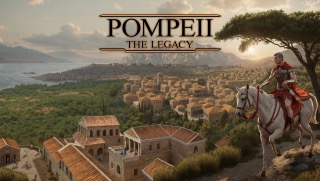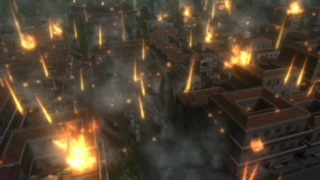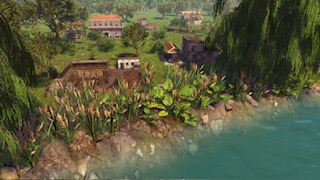
As the city-building genre continues to thrive, an intriguing new entry has emerged on the horizon. Pompeii: The Legacy, set to release in 2025, has already made waves with its September 2nd Steam reveal, sparking excitement among strategy and simulation fans. The game, set 20 years after the devastating eruption of Mount Vesuvius, allows players to rebuild the famous Roman city of Pompeii from the ashes, guiding its restoration across several generations.
A Historical Setting with a Fresh Perspective
Unlike many city builders that focus on abstract settings or fictional worlds, Pompeii: The Legacy brings players deep into the heart of history. The year is 99 A.D., two decades after the eruption of Mount Vesuvius buried Pompeii under layers of ash and pumice. You take on the role of the head of a Roman family tasked with rebuilding the city. But this is not just a simple rebuilding game – the title promises deep strategy elements, intricate city planning, and, most interestingly, a multi-generational narrative.
Players will have to balance the complex needs of their family, citizens, and the city’s economy, all while being mindful of the historical and environmental realities of the time. The concept of leading a family through generations adds a unique dynamic to the gameplay. You won’t just be concerned with day-to-day city management, but also long-term planning, as decisions made by one generation will impact the city for years to come.

Historical Authenticity Meets Strategic Depth
What sets Pompeii: The Legacy apart is its attention to historical detail. The game seeks to create an authentic experience by recreating the architectural styles, economic challenges, and social dynamics of ancient Rome. The developers are aiming for an immersive experience that reflects the real-world difficulties that the Romans faced during Pompeii’s recovery.
However, the game doesn’t sacrifice strategy for realism. Players will manage the city’s resources, ensure that the economy flourishes, and oversee the population’s well-being. Complex urban design is key, as players will need to optimize housing, trade, and public spaces while ensuring their citizens are happy and prosperous. With frequent events, like volcanic tremors or political conflicts, Pompeii: The Legacy will challenge players to think creatively and adjust their strategies to new situations.

A Vibrant World with Dynamic Events
The world of Pompeii: The Legacy is designed to be dynamic and reactive. The landscape around the city will change as players make choices on how to use natural resources or react to unforeseen disasters. The shadow of Mount Vesuvius looms large, and while players won’t have to deal with another cataclysmic eruption, they will need to manage the aftermath of the disaster and be mindful of the environment. The game will also feature random events, including economic shifts and changes in political leadership that force players to adapt and rethink their strategies.
Visuals promise to immerse players in a detailed recreation of Roman architecture, markets, homes, and public spaces. From grand temples to bustling marketplaces, players will witness their city come to life as they rebuild Pompeii into a thriving hub of culture and commerce.
Anticipation for 2025
Pompeii: The Legacy is shaping up to be one of the most exciting city builders of 2025. Its combination of historical authenticity, strategic depth, and multi-generational gameplay sets it apart from other games in the genre. The Steam reveal on September 2nd has already garnered significant attention, with players eager to see how the game’s ambitious concepts come to life.
As the release date approaches, there’s a growing sense of excitement around what Pompeii: The Legacy could offer to both city-building veterans and newcomers alike. The blend of historical detail, family dynamics, and complex strategy looks to provide a fresh and immersive experience for players when it arrives next year.
For now, all eyes are on this promising title as we await more information on how Pompeii: The Legacy will allow players to rebuild one of history’s most iconic cities.

For me, this game stands out because it combines history with deep strategy and family ties, making it more than just a simulation—it feels like a legacy you’re truly creating. I can already imagine the satisfaction of seeing the city rise from the ashes after decades of hard-fought progress, a testament not just to your planning but to your family’s legacy. I can’t wait to get my hands on it and see how my version of Pompeii takes shape!

